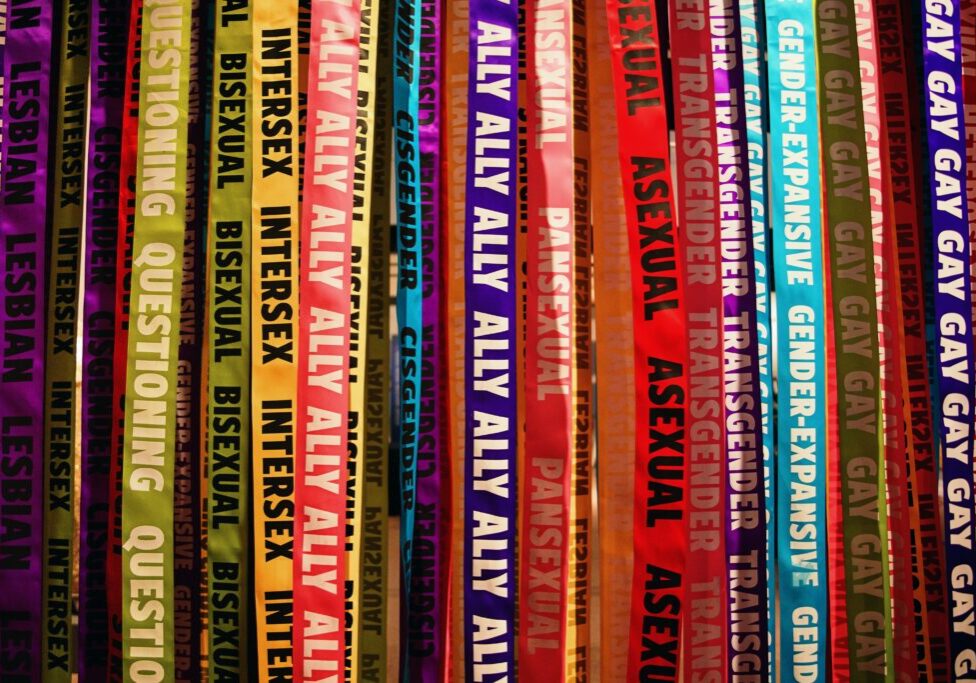We all know that our basic survival needs must be met in order for us to live, right? Food, water, oxygen, all of that Maslow hierarchy stuff. But what about healthcare, economics, safety or civil rights? That might not be the things we tend to think about— not unless those needs aren’t being met.
For a transgender person living in America today, though, those needs aren’t being met. And despite the dramatic progress of the transgender movement in the last decade resulting in significant public awareness and legal victories, trans people continue to face blatant discrimination, high levels of violence, and poor health outcomes.
Economically, we see transgender folks bearing the consequences of discrimination in education and employment resulting in high levels of poverty and homelessness. “Trans people are more than twice as likely to live in extreme poverty (earning under $10,000 a year), with BIPOC (Black, Indigenous, People of Color) transgender people facing more than three times the poverty rate of the general U.S. population.” according to an article in Funders for LGBTQ Issues.
My day-to-day living includes me going on a walk or to the local grocery store or to pick up my prescriptions at the pharmacy down the block.
For a trans person, though, those simple errands can turn deadly.
“Brutal murders of transgender women occur with alarming regularity, often with little response from law enforcement,” again according to Funders for LGBTQ Issues.
In fact, the American Medical Association declared violence against transgender people an epidemic in 2019.
Acknowledging and respecting the civil rights of trans people is crucial because our legal and civic needs stretch into all aspects of our life. For trans people specifically, these needs include identity documents that accurately reflect who they are, protections from harm and discrimination in public places like work and schools, immigration rights, and access to healthcare.
Transgender people face enormous health disparities, including lack of primary care, as well as a lack of access to individualized, medically necessary transition- related healthcare, and high rates of attempted suicide.
To some, something like the choice of name may not seem like an issue of survival. For trans individuals, it can very well be. According to a 2018 study (link to this study) done out of the University of Texas, 71% of youth who were able to use their chosen name in all contexts of life (school, home, work, or with friends) reported fewer symptoms of severe depression and a 65% decrease in suicidal attempts.
So, when we read the facts in the University of Texas study, we might see data. We might see numbers and percentages. But we also see human life. It’s literally a matter of life or death.
Civil rights are a matter of life or death.
Sandwich Trengrove (they/them/he/him), a non-binary transgender activist, faces these issues and more every day. Their story helps shed light on the struggle trans individuals face every day.
“My name is Sandwich. It might sound funny, but I love it and I recently picked it out for myself. I’ve always found myself struggling with my name and more importantly, with my own identity.”
What was your experience like when figuring out your identity?
I knew in my heart that ultimately, I had to make this decision for me, but therein lies the struggle. The balance between self-worth and pleasing other people. It’s a tightrope I’ve walked my whole life, and I usually fall on the side of pleasing others at the cost of sacrificing my happiness. Finding that standing up for myself and my own needs and desires is usually met with waves of shame or guilt.
I’ve made myself compliant to a fault. I have clung to the idea of family loyalty at a huge cost to the formation of an independent identity. Now in my 20s, I’m struggling with defining who I am. To the outside world and to myself. I am now realizing that everyone else is on the outside and I am the only one living with the inside, so they don’t get to define me.
How did people treat you when you discovered this?
My father always told me not to take what he says to heart, ‘they are just words.’
I’ve been on hormones for six months. My body is changing, my transition is in full swing. This should be the happiest time of my life, but it’s not.
The best I get is indifference or an occasional use of a they/them pronoun. ‘I’m not doing the transgender thing, a throw-away comment my dad made while calling me his daughter to the pharmacy clerk.
It’s just words, it doesn’t really matter. But if that is true, why am I still thinking about it weeks later?
A name might just be a word. A title to the story of who you are, but it’s only the beginning; especially for a trans person. I always dreamed that my transition would build my confidence and make me stronger. I thought I knew who would be in my corner and who I needed to protect myself from. I could always be myself around my family— no question. Family is supposed to mean comfort, yet here I am trying to understand what is happening
If there is any advice or anything you could say to help others in regard to being transgender, what would it be?
Nothing aches the soul quite like having to decide whether or not to let go. To save yourself or keep hanging onto someone else so you can fall together. Don’t make someone choose between their own well-being over someone that they love— the outcome is never a happy one.

